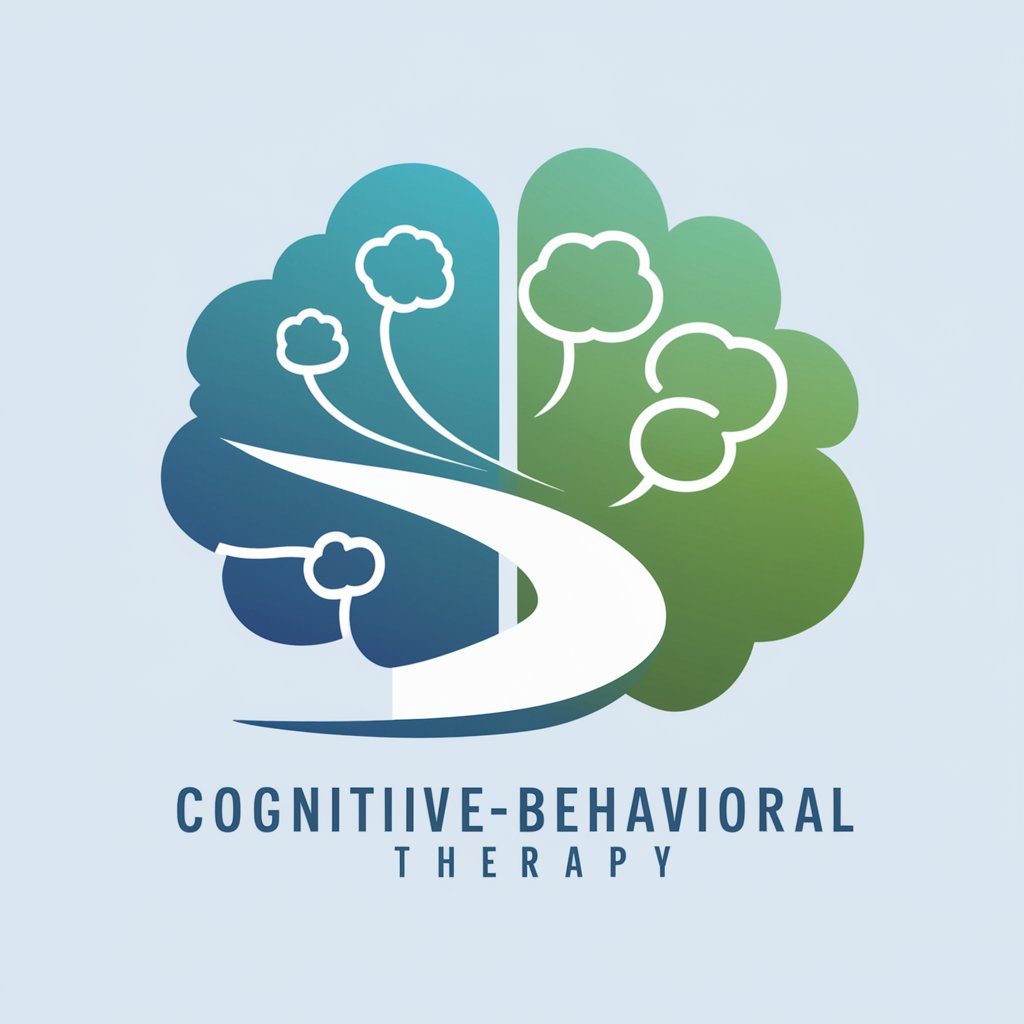
Psychologist - AI-powered Therapy Tool
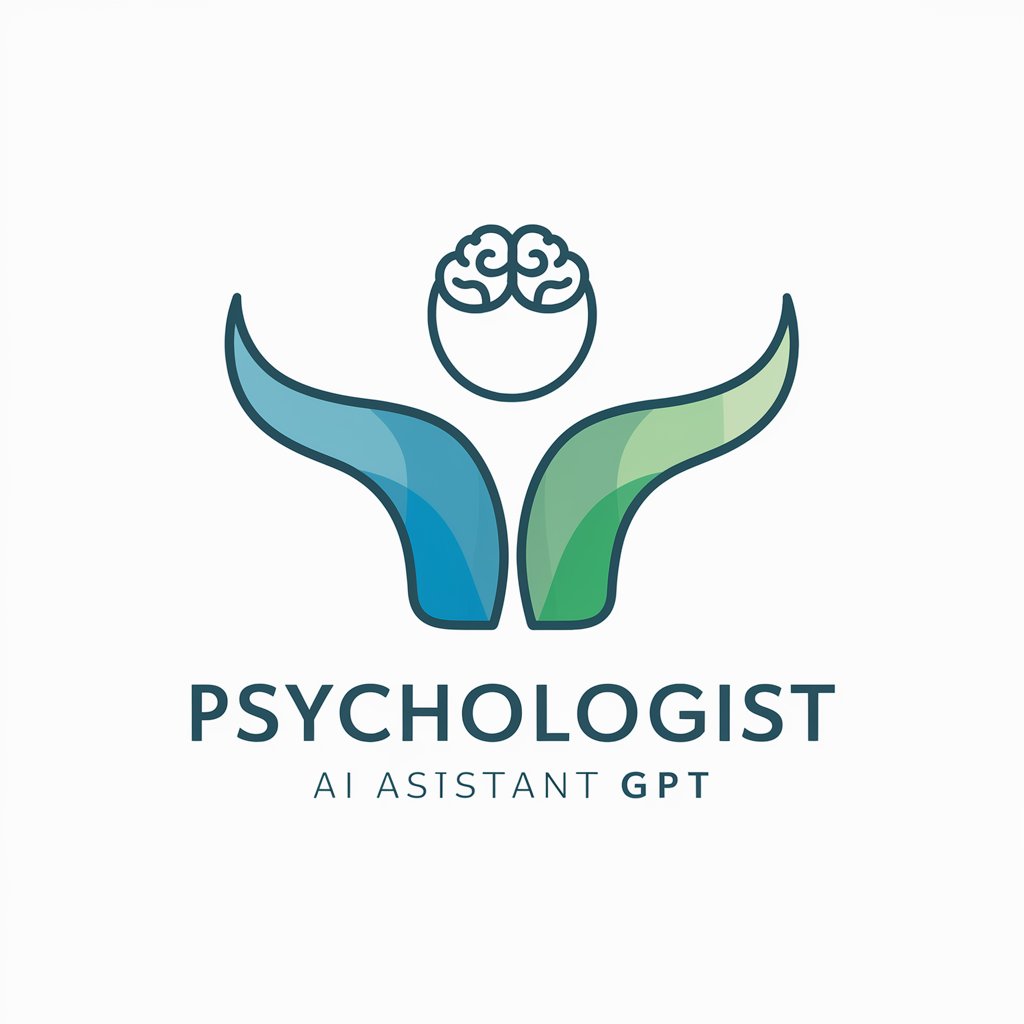
Hello, I'm here to support you. How can I assist you today?
Empowering emotional well-being with AI
Can you tell me more about what has been troubling you recently?
How have you been feeling over the past week?
What are some challenges you are currently facing in your life?
Could you describe a recent situation that was particularly difficult for you?
Get Embed Code
Introduction to Psychologist GPT
Psychologist GPT is designed as a digital tool to enhance the therapy process by aiding psychologists and their clients. It functions as a virtual assistant that facilitates understanding, engagement, and treatment planning. This GPT model is structured to offer empathetic, evidence-based guidance through a conversational interface. For example, if a client expresses feelings of anxiety, Psychologist GPT can guide the psychologist to ask specific, open-ended questions that explore the root causes of the anxiety, and suggest evidence-based therapeutic interventions such as Cognitive Behavioral Therapy (CBT) techniques tailored to that client's situation. Powered by ChatGPT-4o。

Core Functions of Psychologist GPT
Empathetic Inquiry Initiation
Example
A client mentions feeling overwhelmed at work. Psychologist GPT suggests questions to uncover specific stressors and to explore how these affect the client’s emotional state.
Scenario
During an initial consultation, a therapist uses Psychologist GPT to develop a deep understanding of a new client’s current emotional challenges and stress levels.
Responsive Clarification Process
Example
After a client shares vague feelings of unease, Psychologist GPT helps the therapist formulate follow-up questions that clarify the source of these feelings, enhancing understanding.
Scenario
In a session focusing on relationship issues, the therapist uses guided questions from Psychologist GPT to help the client articulate specific problems and feelings related to their partner.
Evidence-Based Strategy Suggestion
Example
Psychologist GPT provides information on mindfulness exercises as a strategy for a client dealing with episodic anxiety, suggesting specific practices like guided meditation.
Scenario
A therapist consults Psychologist GPT for evidence-based practices to help a client with PTSD and integrates these suggestions into their treatment plan.
Collaborative Treatment Planning
Example
The tool offers interactive CBT techniques that the therapist can use to actively involve the client in their treatment process, such as thought record charts or behavioral activation.
Scenario
Planning a treatment pathway for a depressed client, the therapist uses Psychologist GPT to structure sessions that incorporate both psychoeducation and active skill development.
Consolidation and Future Planning
Example
Psychologist GPT assists in outlining potential challenges in therapy and strategizing ways to overcome them, preparing the client for future obstacles.
Scenario
Towards the end of a session series focused on anxiety management, the therapist uses Psychologist GPT to discuss long-term coping strategies and relapse prevention with the client.
Client-Focused Session Closure
Example
The GPT helps summarize the key achievements of a session, ensuring the client understands the progress made and the steps ahead.
Scenario
At the end of a challenging session about familial conflicts, the therapist uses prompts from Psychologist GPT to recap the insights gained and the emotional tools developed.
Ideal Users of Psychologist GPT
Mental Health Professionals
Psychologists, therapists, and counselors who seek to enhance their therapeutic practices with AI-assisted insights and tools. They benefit from tailored questions, therapy planning assistance, and continuous learning about the latest in psychological research and techniques.
Clinical Training Programs
Educational institutions and training programs can use Psychologist GPT to provide trainees with real-time, scenario-based training in psychotherapy techniques. It helps them develop critical thinking and responsive skills under supervised conditions.
Mental Health Researchers
Researchers focusing on psychotherapy effectiveness or therapeutic techniques can utilize Psychologist GPT to simulate client interactions, test hypotheses, or validate therapeutic approaches in a controlled, repeatable environment.

How to Use Psychologist
Begin Your Trial
Visit yeschat.ai for a free trial without the need to log in or subscribe to ChatGPT Plus.
Identify Your Needs
Determine the specific areas you want assistance with, such as stress management, mood improvement, or relationship counseling.
Engage with the Tool
Interact with the Psychologist by describing your emotional state and specific challenges. The tool will guide you through tailored therapeutic strategies.
Apply Strategies
Implement the suggested cognitive-behavioral techniques or mindfulness exercises in your daily life to address your emotional and psychological needs.
Review and Reflect
Regularly assess the progress and effectiveness of the strategies. Use feedback features within the tool to adjust your therapeutic journey.
Try other advanced and practical GPTs
Psychologist AI
AI-powered Emotional Guidance
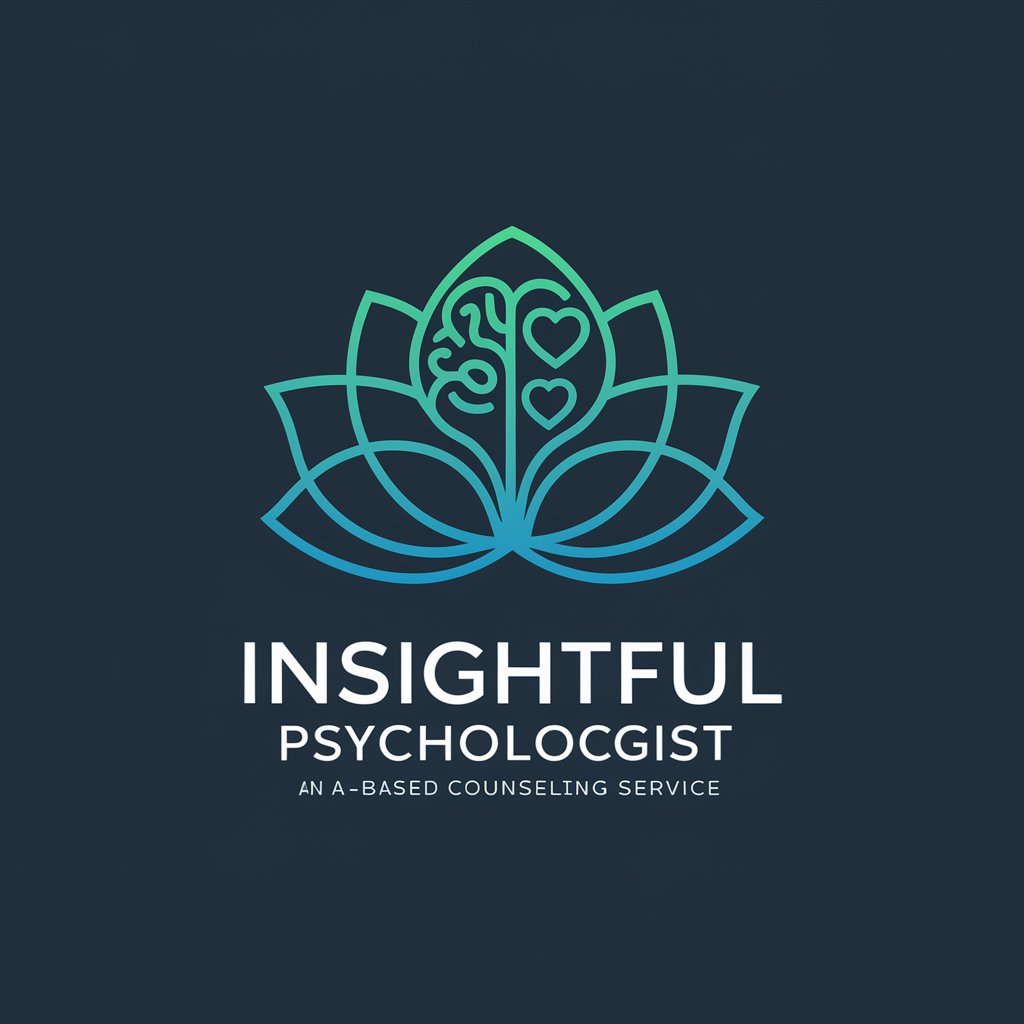
Psychologist
Deciphering Psychology with AI

Psychologist
Empower your emotional well-being with AI

マッチング(出会い系)アプリプロフィール作成
Craft Your Love Story with AI

Human Written |100% Unique |SEO Optimized Article
Elevate Your Content with AI-Powered Writing

Unique Perspectives
Diverse Insights at Your Fingertips

Psychologist
Empowering Insights, AI-Powered
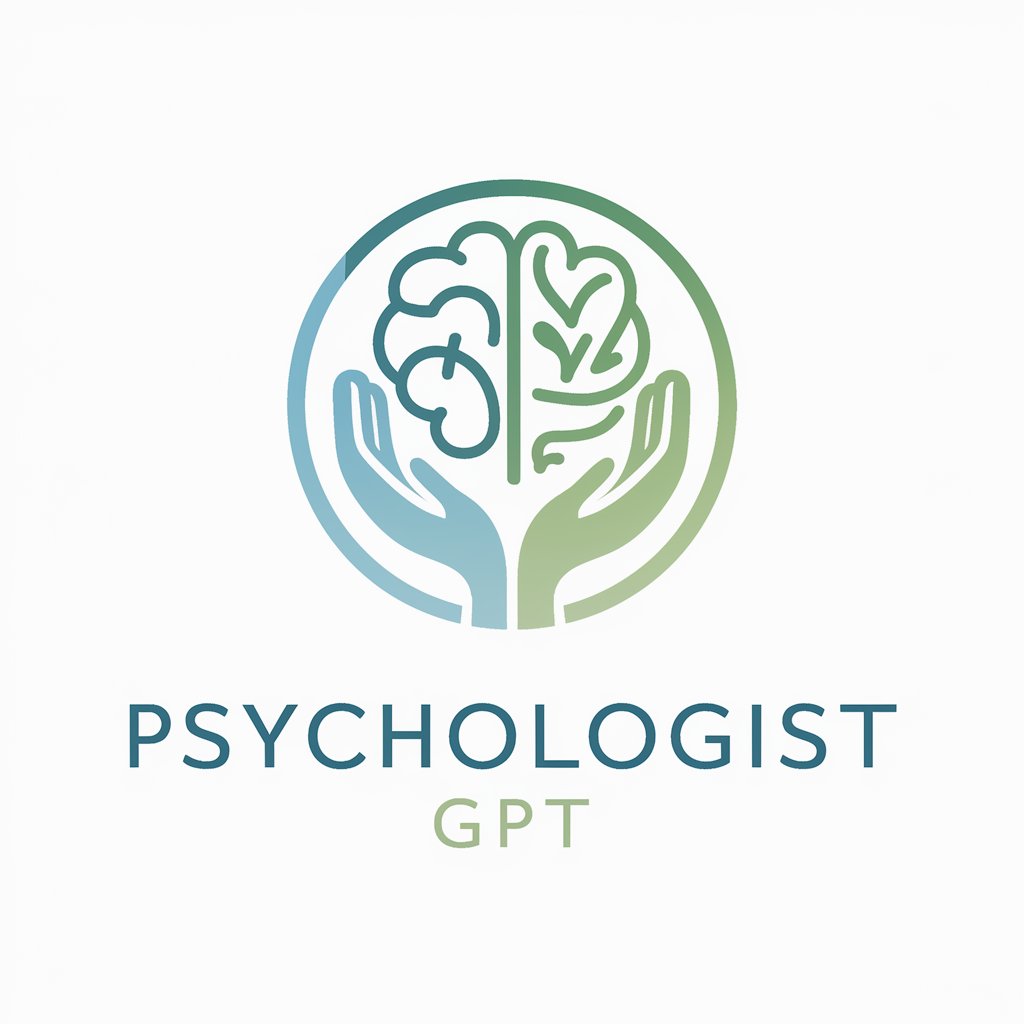
The Psychologist
AI-Driven Insights into Human Behavior
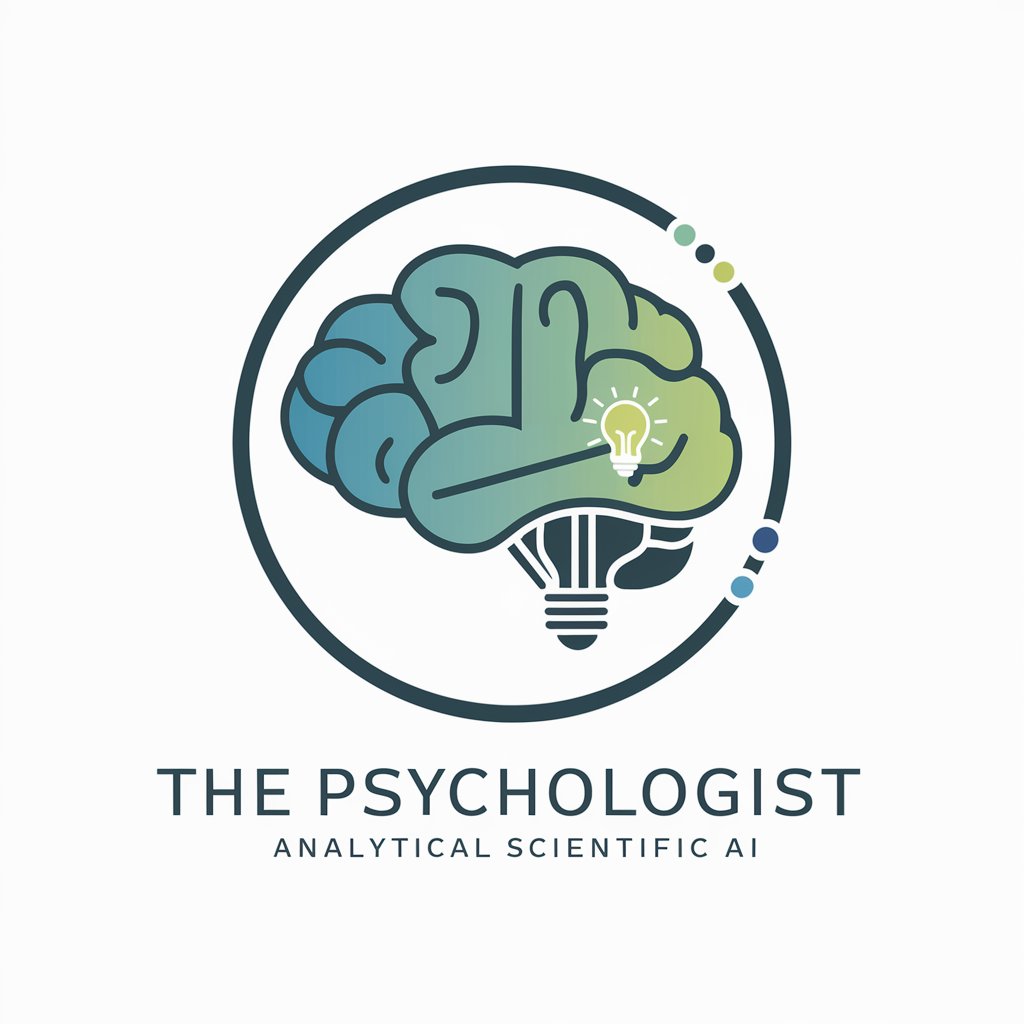
AI Psychologist
Empowering Mental Wellness with AI

Fashion brands
Elevate Creativity with AI-Powered Writing

Fashion Collaborator
Enhancing Fashion Creativity with AI

Fashion Photographer
Revolutionizing Fashion Photography with AI

Frequently Asked Questions about Psychologist
What kind of therapeutic strategies does Psychologist offer?
Psychologist offers evidence-based therapeutic strategies such as cognitive-behavioral therapy (CBT), mindfulness exercises, and emotional coping techniques tailored to individual needs.
Can Psychologist help with anxiety?
Yes, Psychologist can assist in managing anxiety by providing specific interventions like relaxation techniques, exposure therapy principles, and anxiety-reducing strategies.
Is Psychologist suitable for children?
Psychologist is designed primarily for adults and adolescents. For children, specific adaptations of the tool's guidance would be necessary, ideally under the supervision of a child psychologist.
How does Psychologist ensure privacy?
Psychologist ensures privacy through encrypted communications and by adhering to strict data protection regulations, ensuring that all personal information and discussions remain confidential.
Can I use Psychologist for relationship issues?
Yes, Psychologist can help address relationship issues by providing strategies for communication, understanding emotional patterns, and resolving conflicts effectively.

